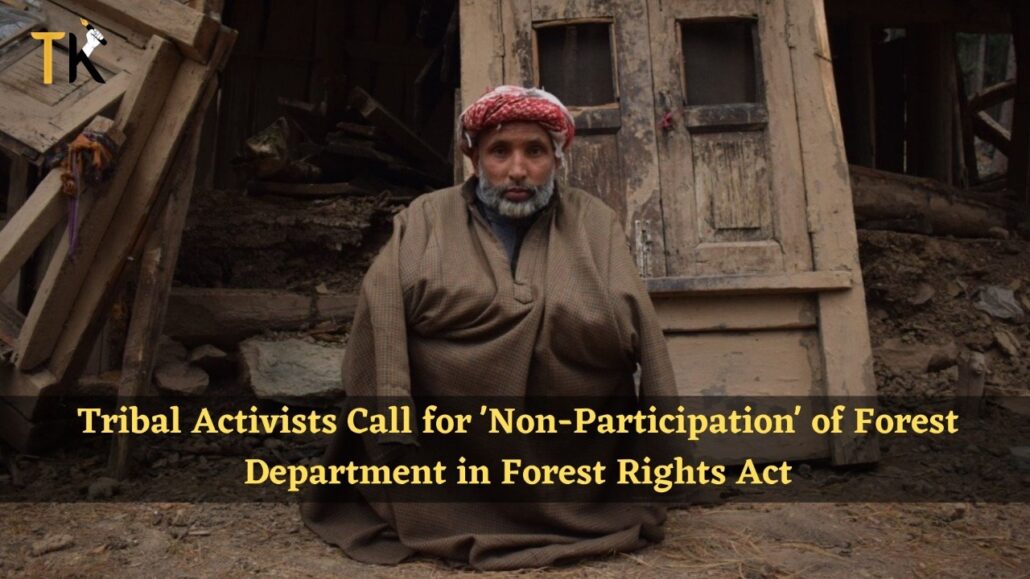
The Ministry of Environment, Forest and Climate Change (MoEFCC) issued a statement dating 8th of April, 2021, inviting “Expression of Interest (EOI) from Indian consulting agencies/firm/joint venture consortium for preparing draft of amendment of Indian Forest Act, 1927.”
The objective of this exercise as claimed by the statement is “to prepare a draft of the comprehensive amendment of Indian Forest Act, 1927 in consultation with State Governments/UT Administrations, Central Government ministries and other stakeholders.”
The proposal of the IFA 1927’s revision isn’t new. The proposal had been on the current government’s card since it came to power in 2014. It was in that very year that, a committee headed by then cabinet secretary T.S.R Subramaniam had submitted a report in November, 2014, recommending and drafting amendments in six of India’s major environmental and forest laws including IFA 1927. But after recieving backlash all across India, the amendments were put on hold.
Earlier in March 2019, ahead of the Lok Sabha elections, the environment ministry had proposed to amend the IFA. The amendment proposed to grant more power to the forest bureaucracy, encourage large scale afforestation for carbon sequestration and enhance penalties for violations. Experts and organisations working for forest dwellers’ rights stated that the proposed amendment was anti-tribal people and forest dwellers and planned to challenge the amendment.
Although, in November 2019, the Union Environment Ministry withdrew its draft proposing the amendments. The proposed amendments were protested by some states and activist groups. “Let me clarify that this wasn’t a government draft, as such. We had just consolidated views from various States with a significant forest cover. Over a few months, we’ve learnt that this has led to wrong interpretations. So we are withdrawing the zero draft.” Union Environment Minister, Prakash Javadekar had said regarding the withdrawal of the proposal.
The Indian Forest Act, 1927, based on the previous Indian Forest Acts implemented under the British, commenced from 21 September 1927. It was enacted by the Imperial Legislative Council. The act sought to consolidate and reserve the areas having forest cover, or significant wildlife, to regulate movement and transit of forest produce, and duty leviable on timber and other forest produce. The act also defines the procedure to be followed for declaring an area to be a Reserved Forest, a Protected Forest or a Village Forest. It defines what is a forest offence, what are the acts prohibited inside a Reserved Forest, and penalties leviable on violation of the provisions of the Act.
The current statement or the call for preparing a draft of amendment of the IFA 1927 states that in order to make various legislations implemented by different organizations synchronize with the contemporary needs, the Central Government is undertaking a comprehensive review of these legislations. It further claims that “the exercise is focusing on decriminalizing relatively minor violations of law, expeditious resolution through compounding relatively small offences, reducing compliance burden on citizens, rationalization of penalties, preventing harassment of citizens, de-clogging criminal justice system, expanding and improving of the use efficiently of resources, and promoting people participation and ease of doing business.”
The statement maintains that the exercise of bringing about legislative reforms on forest governance has also been going on in the Ministry of Environment, Forest and Climate Change (MoEFCC) for some time now.
The statement, further mentioned the amendment in the IFA, which happened in the year 2017. The Indian Forest (Amendment) Ordinance, 2017, promulgated on November 23, 2017, amended the Indian Forest Act, 1927, under which, the definition of tree included palms, bamboos, stumps, brush-wood and canes. The Ordinance amended this definition to remove the word bamboos, following which, the bamboos growing in non-forest areas were to be waived off the requirement of permission for its felling or transportation for economic use.
In the view of the comments recieved, the statement says, a more comprehensive and pragmatic amendment of the IFA 1927 may be examined that may encompass more “elements such as provision of graded penalty, removing difficulties in trade and transit of forest products across States, or across national borders in order to encourage forest sector economic growth in the country, encouraging specially non-government actors/ private sector/ civil society/ individuals to take up afforestation/tree planting and/or to develop/manage private forest on non-forest lands on their own, and incorporating pragmatic legal provisions already made in State forest laws and State amendments in the Indian Forest Act so that all States benefit similarly.”
The statement notes that “the central level legislative reform process will require wide consultation with the States and other stakeholders. They should also take into account leading orders/ judgements of Hon’ble NGT, Hon’ble High Courts and Hon’ble Supreme Court of recent years.”
The 2019 draft drew disapproval from various tribal welfare organizations and activists. According to a report by The Hindu, although the proposal was dropped then, the Director-General of Forestry, Sidhdhanta Das had stated that an amendment to the Forest Act was due. “We will revise it and look at it with fresh eyes. But we will definitely have an amended Act and have wider discussions,” Das had claimed.
